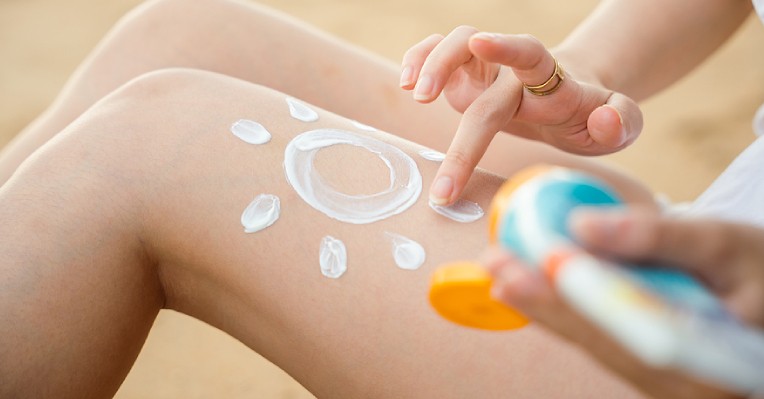Sunny days make for perfect weather to get out, enjoy some fresh air, and bask in the sunshine. But given today’s climate conditions, it is easier than ever to take in too much of the sun’s rays and get sunburnt. But is what you feel on your skin just a normal case of sunburn, or could it be sun poisoning? While both are common during sweltering days and especially in the summer, they have keen differences, as we explain below.
How to tell apart regular sunburn from sun poisoning
Sun poisoning is fundamentally a more harmful and severe kind of sunburn in which symptoms and duration last longer than usual. Normally, sunburns go away in several days, but sun poisoning lingers much longer and manifests as blisters, hives, and nausea. This is why sun poisoning is generally described as a condition that goes beyond a simple burn and is more of a sickness or allergic reaction.
Although both sunburn and sun poisoning cause redness, swelling, and pain on the skin, the latter brings additional symptoms beyond the surface level. Healthcare providers denote that sun poisoning looks just like a sunburn at its early stages, but soon after, blisters will soon pop up on the skin due to inflammation and cause peeling once they rupture. The following symptoms are the common signs that denote there may be more to your sunburn than meets the eye:
- Blisters
- Severe sunburn
- Itching or pain
- Headaches
- Rapid heart rate
- Fever
- Lightheadedness or dizziness
- Fatigue
- Dehydration
- Skin feels hot to the touch
Treating sunburn and sun poisoning
Treatment for sunburn and sun poisoning can be similar since the two conditions generally go hand-in-hand. Fortunately, you can treat both with home remedies, provided you only have mild sun poisoning. To find relief, consider the following steps:
1. Stay out of the sun
First and foremost, take shade immediately if you notice your skin is having an adverse reaction to sunlight and avoid further exposure for the time being.
2. Rehydrate
Dehydration is a common occurrence when you get sunburn and sun poisoning, so take care to replenish your fluid levels by drinking lots of water or drinks that contain electrolytes.
3. Do not pick at your skin
Expect your skin to peel and flake when you have sunburn and sun poisoning, with the latter also causing blisters. As such, it is vital to refrain from picking at your skin since it will exacerbate the inflammation and result in unwanted scarring.
4. Take a cold shower or apply a cold compress
In certain cases where sunburn or sun poisoning is less severe, cooling down your skin by taking a cold shower or using a cold compress can help relieve the symptoms.
5. Try over-the-counter pain relievers and creams
Acetaminophen, ibuprofen, and other similar medications can help with the pain, discomfort, and stinging feeling common in severe cases of sunburn and sun poisoning. Similarly, creams like natural aloe vera and hydrocortisone can mitigate other symptoms like itching, redness, and a burning sensation. That said, be careful when choosing creams, as certain products may cause your sun poisoning to worsen.
For more severe cases of sun poisoning, medical attention and proper treatment may be necessary. These include:
- Intravenous fluid (IV) treatment
Since severe sun poisoning also leads to severe dehydration, an intravenous fluid (IV) treatment will be necessary.
- Oral or topical medications
Steroids or antibiotics can help treat extreme sun poisoning, specifically the areas affected by symptoms and prevent infections.
When to see a doctor
Home remedies are usually enough to treat most cases of sun poisoning, but there are cases where seeking medical attention and going to the emergency room will be necessary. Once admitted, you will likely be cared for at the burn unit or provided with intravenous fluids.
As a rule of thumb, see a doctor immediately whenever you feel intense burning pain and notice widespread blisters on your skin, even after trying home remedies or when you start showing signs of heat stroke.
Conclusion
The discomfort caused by sunburn is undoubtedly inconvenient, but it will heal in no time, especially with the help of proper treatment. Should severe symptoms like blistering, dizziness, and nausea arise, you likely have a case of sun poisoning and need to visit a healthcare provider.
If you want to confirm if you are dealing with sun poisoning or normal sunburn, get in touch with a virtual doctor in Singapore via an online medical consultation today. By getting a consultation first using the MYCLNQ app, a professional medical expert can assess your symptoms and let you know if your symptoms are worth taking a trip to the hospital or if home remedies and rest will be enough to get you back on your feet. To learn more about the services you can access with the app or understand more about the symptoms you are experiencing such as vision disturbances, don’t hesitate to contact us at any time.


